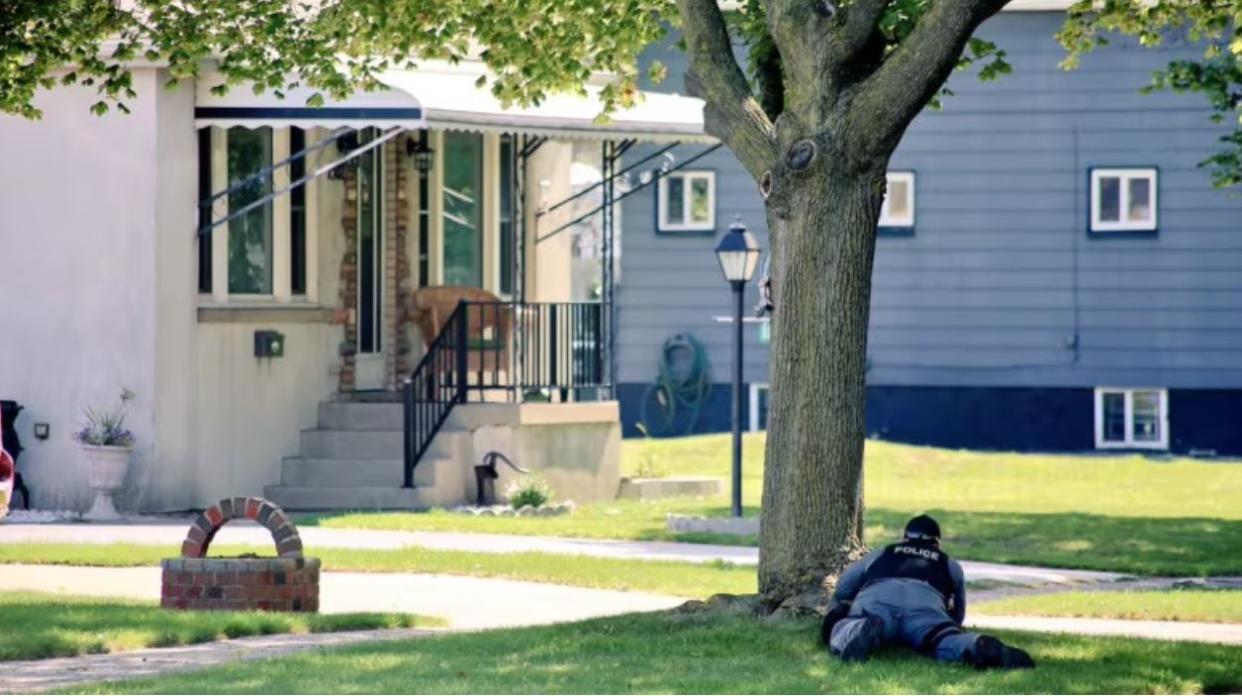More training, 24-hour metal health clinic among jury's 15 recommendations in Romanick inquest

WARNING: This story discusses suicide.
The inquest jury in the death of Chad Romanick made more than a dozen recommendations aimed at improving police response, health care and emergency communications for people in mental health crises.
After several hours of deliberation at the conclusion of the nine-day inquest Thursday, jury members delivered 15 non-binding recommendations addressed to Windsor police, Windsor Regional Hospital and Hôtel Dieu Grace Healthcare, with the bulk of recommendations made to the hospitals.
The goal of the recommendations is to prevent similar deaths in the future, but the purpose of the inquest is not determine fault or determine guilt. Ontario's Special Investigations Unit had previously cleared police of any wrongdoing in Romanick's death.
Romanick, 34, shot himself in the garage of his home on Betts Avenue during a police standoff on Sept. 15, 2017. Police were there to arrest Romanick on a charge of attempted murder.
The mandatory inquest into his death began on March 25.
Jurors accepted many of the recommendations that had been proposed by inquest council, police and the hospitals. while adding others.
The recommendations include incorporating calls Romanick made to 911 into the scenario-based training for 911 communicators and exploring opportunities to improve 911 communicator training with scenario-based and role playing approaches for crisis intervention and de-escalation, and implement continual refresher training on crisis intervention and de-escalation.
The jury also recommends improving communication between different police teams and 911 operators and crisis response teams.
Hôtel Dieu Grace Healthcare and Windsor Regional Hospital were asked to consider exploring the availability of more training and resources for health care professionals about people in crisis.
They also recommended expanding follow-up services for patients to include more "touch points" to make sure referral plans are in place, and the possibility of providing more follow-up support to families and caregivers who have a loved one in mental health crisis and helping them better access community services.
The jury also recommended collaborating with stakeholders to explore whether the Mental Health Addiction Urgent Care Clinic could be expanded to provide 24-hour service, and work with the Ministry of Health to establish targets for access to mental health services.
Finally, the jury asked local mental health and addictions teams, along with Ontario Health, to come to a common, standardized definition of "wait time" and make those wait times available.
The institutions the jury made the recommendations for are not obligated to implement them.
Windsor Regional Hospital counsel objected to the recommendation of providing 24-hour access to the MHAUCC.
"There's not been any evidence before this jury that there was any issue or barrier to Mr. Romanick's accessing urgent mental health care," said WRH co-counsel Lipi Mishra.
Romanick had mental health crisis prior to standoff
Romanick had voluntarily attended the emergency room at Windsor Regional hospital with police a few days before his death, experiencing a mental health crisis. He was assessed and sent home.
On Wednesday, jurors heard from a hospital vice president and police inspector that many new procedures and crisis teams are in place now that weren't in place in 2017 to help people.
But in his submission Thursday morning, inquest counsel Roger Shallow told the jury no matter how much information police at the standoff had about Romanick, it would not have changed the need to arrest him on a charge of attempted murder and nothing could have changed the outcome at the standoff.
"As much as we might tempted to think there might possibly have been something that could have been done I'm going to suggest to you that the overwhelming evidence heard at this inquest that the blunt answer is probably no," said Shallow.
If you or someone you know is struggling, here's where to get help:

